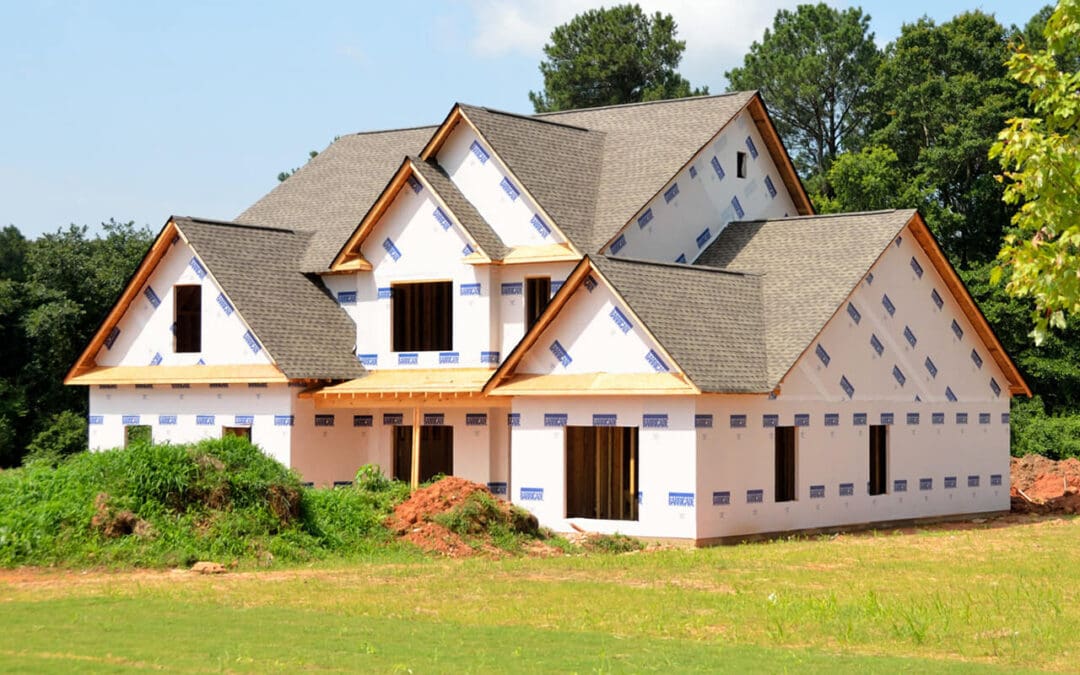Buying a brand-new home is an exciting milestone. The smell of fresh paint, the shine of new appliances, and the knowledge that no one else has lived there before will make it feel flawless. However, just because a home is new doesn’t mean it’s free from problems. New construction inspections are designed to identify issues early, before they become costly or unsafe. These inspections give buyers confidence that the home was built correctly and to standard, and they provide peace of mind knowing that your investment is protected from day one.
Why New Construction Inspections Are Important
It’s a common misconception that a new home doesn’t need to be inspected. The truth is, building codes establish minimum standards, not perfection. Inspectors often find missing insulation, improperly wired outlets, plumbing leaks, or grading issues that could cause water intrusion down the road. New construction inspections guarantee that even small details are caught and corrected. Without this step, buyers may inherit problems that don’t show up until months or years later, when the builder’s warranty may have expired.
Consider Opting for Phase Inspections
A valuable aspect of new construction inspections is that they may be scheduled throughout the building process. Pre-drywall inspections allow inspectors to check wiring, plumbing, HVAC systems, and structural framing before closing walls. Final inspections, conducted once the home is move-in ready, guarantee that everything from roof shingles to water heaters is in proper working order. Some homeowners also schedule a one-year warranty inspection, allowing them to identify issues that may have surfaced after living in the home for a while. This phased approach means that problems are identified when they’re easiest and cheapest to fix, providing ongoing protection during the construction and warranty periods.
Protect Your Investment
A home is one of the largest financial commitments most people make, and protecting that investment should be a priority. New construction inspections safeguard against hidden defects that might not appear until you’ve moved in. By catching these issues early, buyers can work with the builder to correct them, avoiding repair costs that could otherwise fall on their shoulders. In addition, an inspection report provides a valuable record of the home’s condition at the time of purchase, which will be useful not only for peace of mind but also if you decide to sell in the future.
Common Issues Found During New Construction Inspections
It might be surprising how many issues arise during new construction inspections. Inspectors regularly find uneven flooring, improperly installed shingles, gaps in caulking and sealing, misaligned doors or windows, and HVAC systems that aren’t properly balanced. Other common discoveries include drainage problems around the foundation, missing insulation in attics, and plumbing systems that aren’t properly pressurized. While some of these may seem minor, they could add up to major expenses if overlooked. A small drainage issue now could result in significant foundation damage later. Addressing these concerns before moving in allows you to set yourself up for a safer, more comfortable, and more efficient home.
Working with Your Builder After New Construction Inspections
Builders generally prefer fixing problems before closing, saving them from warranty claims later. A professional inspection report provides clear documentation of any concerns, giving buyers a strong position when requesting repairs. Open communication with your builder, backed by the findings of new construction inspections, helps guarantee a smoother closing process and a home you’ll feel good about. Many builders appreciate the role of the inspector because it helps them catch details that might have slipped through in a fast-paced construction schedule.
The Long-Term Benefits of New Construction Inspections
While the immediate benefit of new construction inspections is fixing problems before you move in, the long-term payoff is just as significant. Identifying issues early prevents them from snowballing into costly repairs down the road. Proper grading now prevents foundation damage later. Correct electrical wiring reduces the risk of fire. Addressing insulation gaps improves energy efficiency for years to come. New construction inspections help you start homeownership on the right foot. They’re not just about today’s peace of mind, but about setting up your home for long-term durability and value.
FAQs
Do new homes really need inspections?
Yes. Even brand-new homes could have hidden issues that building code inspections don’t cover. A professional inspector provides an unbiased review to guarantee quality and safety.
When should I schedule new construction inspections?
Ideally, inspections should be done at key phases: before drywall installation, before final walkthrough, and sometimes at the one-year warranty mark.
Who pays for new construction inspections?
Typically, the buyer hires and pays for the inspection. However, the cost is minimal compared to the potential expense of undiscovered issues.
What happens if the inspector finds problems?
The inspector provides a detailed report that can be shared with the builder. Most builders will address issues before closing as part of their responsibility to deliver a finished home.
Rhode Island Real Estate Inspection Services provides home inspections to customers in Rhode Island. Contact us to request our services.

